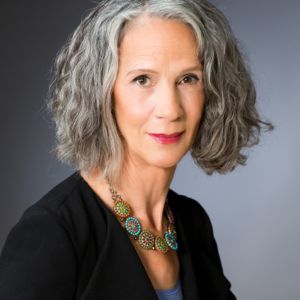Lynne Gilliland is back with another insightful episode of Lessons from Leaders. Today, she’s speaking to Sylvia Megret, Chief Operating Officer of ACDI/VOCA. Sylvia shares her thoughts on failure and why she believes it’s key to professional success. Sylvia also highlights some of the challenges women in leadership face, and the importance of mentorship for all.
Below is an abridged excerpt from the episode, watch the video to hear the entire interview!
Lynne: Tell us a little bit about you and how you got to where you are now.
Sylvia: I’ve always had a passion for international development, but it really started when I had got my degree from American University in 1992, with my master’s degree. Although throughout my academic career, learning and trying to understand the challenges facing international development was very compelling to me. I can’t exactly tell you what I set out to do, a path to where I am right now. In fact, my path was in part led by so many people who helped guide me or give me opportunities that in many ways, through serendipity, ended up being where I am.
What are some of the things that bring you joy?
I have been so lucky to be, as I mentioned, on the receiving end of mentoring relationships with some very amazing people who have helped me either get a job or be better at my job, or to build a greater network, or to help me break down key career decisions. One of the great joys I get right now is being able to give back and being able to mentor young professionals, mid-level professionals, and sometimes even others.
Let’s talk about failure. Is failure always a bad thing? How can we be okay with not having to be 100% correct?
I think that failure is absolutely key to success. I think that if you can’t learn, then you’re not going to move forward.
I think when you’re younger, success in your career is about getting ahead, building yourself up, learning new skills, getting that promotion and promoting yourself. I think when you get to a leadership level, your role is about helping other people and promoting other people, and they are the center, not you. I think that successful leaders need to be able to help people recover from failure. If you can’t recover from failure, you’re not resilient. If you’re not resilient, you’re going to have a hard time getting to the next level or being able to survive organizationally big challenges.
As a leader…you’re making decisions, some that work, some of them don’t, and there’s lots of people watching. There’s no place to hide.
In the end, leadership is responsible for the decisions that are taken, and they have to hold that responsibility very carefully. I think the key to that is, when making difficult decisions – because that’s the job of leadership – it’s critical to do it with empathy and transparency. If you don’t have those things, I think you have a greater or higher risk of failure.
This is the first time somebody’s raised the topic of forgiveness. It fits in so nicely with failure. I would think that if we have a culture of forgiveness, that it’s easier to rebound. Have that resilience.
I think that there’s been in the past, this image of leadership as infallible, perfect. They have the right answers at the right time, they come in, This is what we’re going to do, and we’re all going to go this way. I think that what happens is over time, [with] the stress of having to live and be that perfect superhero, the real human comes out one day.
When they do, they either come out burnt out or with such gaps when they leave an organization, that it’s hard to recover from. I think we need a new leadership style that embraces vulnerability, and that cares about humility and respect, and transparency.
If you think back on yourself, what advice would you give yourself from what you know now, what do you wish that you knew when you were younger?
I do think that we need to accept and even celebrate our imperfections, and acknowledge them, and be transparent about them. That doesn’t mean you can say, Oh, I’m not doing that part of my job because I’m not good at that, and I don’t like that. That’s not what that means. It means sitting down and figuring out where you can contribute best and most, and where do you need help, either from your mentors, from your supervisors, from your teammates, or whoever.
How do you take time to reflect, and know what you’re thinking and where you want to go?
Time is precious and hard to find, but you do have to take care of yourself, and you do have to find those moments where you can reflect on all kinds of things. I think that it’s absolutely critical.
There are times we have to work on the weekend. It’s just the reality of deadlines and clients, but I really work hard to have that work/life balance, so that I can create that space, and hopefully that space for the teams that work for us too. Particularly when my kids were younger, they’d go to bed at eight o’clock and you’d easily get an email from me between 10:00 and 02:00 in the morning, for many, many, many years. Now, I intentionally don’t do that because as a leader, I also want to model behavior. I think that people need to see me taking some time to sit down and reflect.
What are some challenges for women as leaders?
First of all, we struggle with issues of pay parity. I think that’s one that we struggle [with] both for ourselves as leaders, but also making sure that our organizations are committed to pay parity. I think that’s a big broad issue.
I think lack of confidence is one that can be at all levels. Am I good enough? Am I making the right decisions? Some of the things that I’ve talked about earlier maybe seem like very soft issues – vulnerability, forgiveness, and how does a hard-driving CEO or CFO, or whomever else, how will they react to those things? Figuring out what your voice is and how you can have an impact, for sure. We talk about the double bind a lot, and how women are impacted. A man is considered strategic, but a woman is considered cunning. All of those things unfortunately still exist.
In your own life, how have you maneuvered that, then?
I think it takes time because you have to have room for some mistakes, and you realize, Wow, I was way too hard driving on that one, and on this one, wow I didn’t demonstrate quite enough confidence. For me, it’s about getting feedback, and asking people, and talking to people. Some people, and it’s actually been very effective for me at various times in my career, have realized that getting a coach for example, is a really useful way of grounding yourself in your ideas, and how you are navigating these things. Getting a mentor is another one. Even though it sometimes can be very hard, it’s about seeking authentic feedback and being able to sit back and reflect, and to be listening carefully to what others are telling you. It’s not easy.
I wanted to circle back to was when you said people need to have self-confidence. What’s the magic bullet for that, or the magic wand?
I think it’s about giving yourself a little bit of leeway and trying to accept that if you are authentic, and hardworking, and forgiving, and if you demonstrate mindfulness and humility, you’d be surprised. I don’t have all the answers. In fact, I have very few. I couldn’t do my job if it weren’t for all the other smart people here, who do their jobs.
Confidence, it’s a really tough one, but it’s a cultural change in some ways, even in an organization.
Head over to Lynne Gilliland’s website where you can also listen to many of her podcast episodes.


